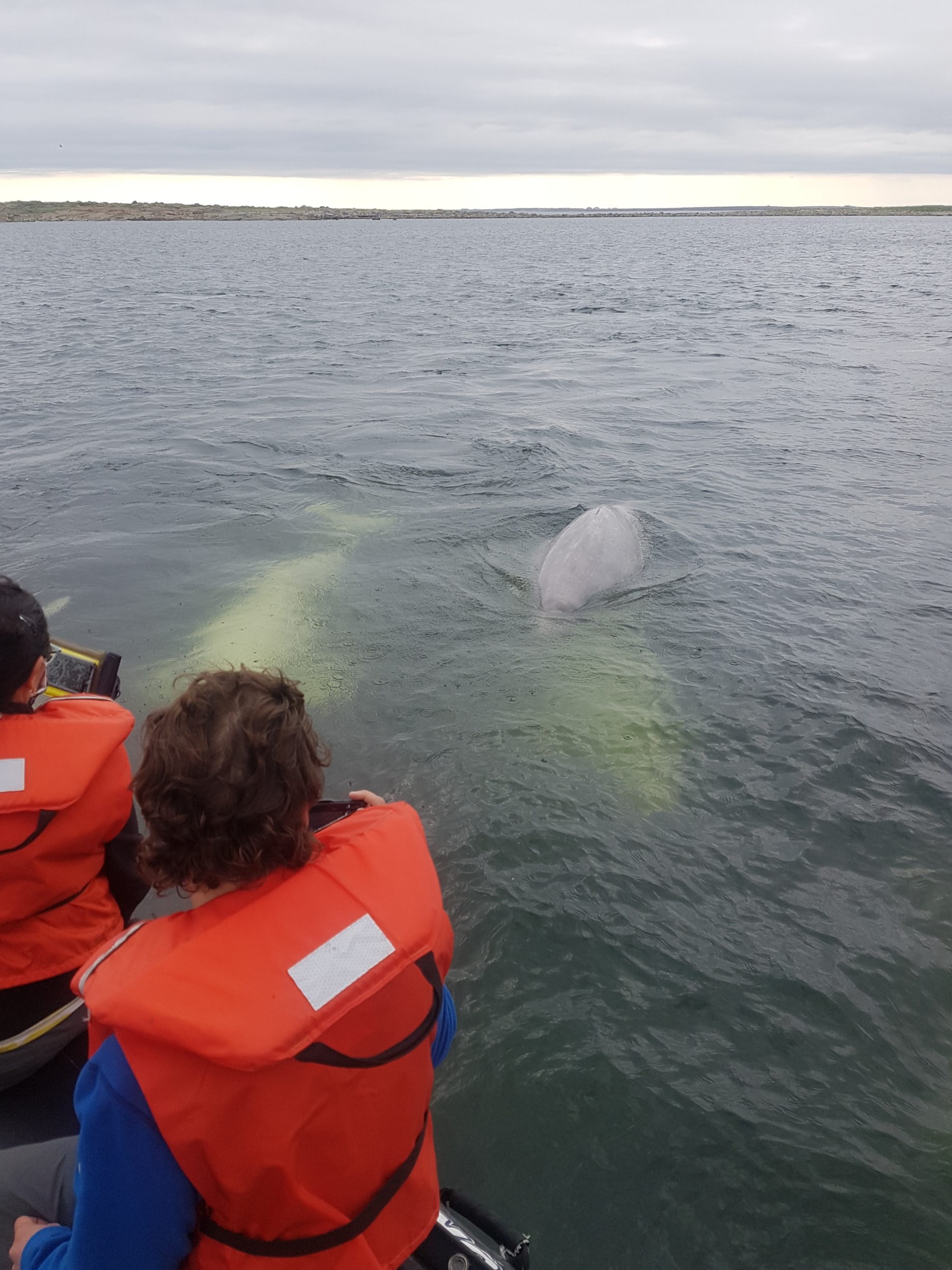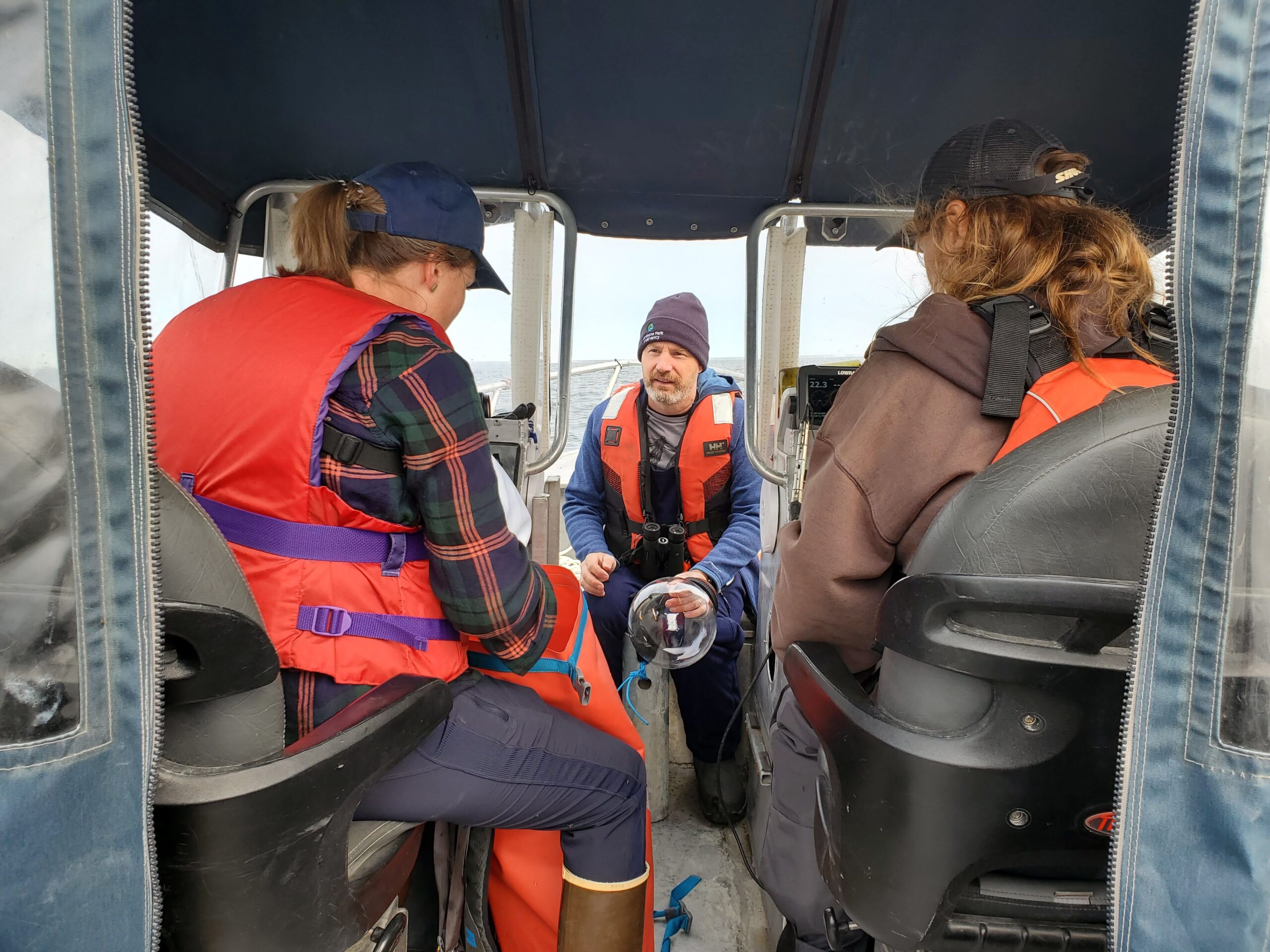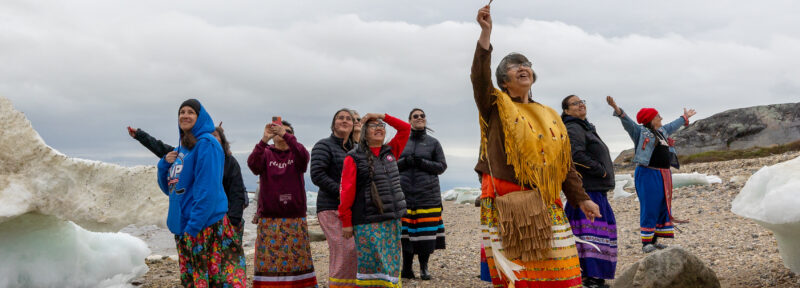Scientists Studying Belugas in Churchill Create a Working Group
Tourists observe belugas from a zodiac in the Churchill River estuary.
Credit: Erica Gillis
Every summer, thousands of beluga whales gather in Manitoba’s Churchill River, which makes the town of Churchill one of the best places to see—and to study—belugas. As more and more research on belugas takes place here, the need to foster collaboration between scientists working in this region has also increased. That’s why the Beluga Working Group has been created, which now includes about 20 members representing researchers from nonprofits, government and academia.
The initial motivation for organizing the working group in 2019 was to keep everyone informed of each other’s plans and projects so that we can improve our communication with residents of Churchill. Beluga scientists often find themselves being asked questions about other research projects that they aren’t directly involved in while they are doing fieldwork.
The additional benefit is that it has opened opportunities for researchers to collaborate, share data and ideas, and help one another succeed. The working group consists of scientists and collaborators who study a wide range of topics relating to beluga abundance, behaviour, movements, acoustics, health, threats and more. The list continues to grow and change as projects start and finish. The shared goal is to understand more about these whales and provide information that will help manage human activities in a way that ensures healthy beluga populations.
Beluga Bits researchers C-Jae Breiter and Dr. Stephen Petersen and Beluga Boat captain Kieran McIver discus the deployment of a 360 degree camera while on the water.
Credit: Ashleigh Westphal/Assiniboine Park Conservancy
Members of the working group currently include representatives from Assiniboine Park Conservancy, Fisheries and Oceans Canada, Polar Bears International, Oceans North, Ocean Wise, and the University of Manitoba. Membership fluctuates as graduate students finish their research and move on with their careers.
The group has also proven helpful in identifying where research projects start to overlap and could waste valuable resources. With planning, the group provides an opportunity to share data or resources to the benefit of both scientists and beluga populations. Research groups who tend to be in Churchill more often or for longer time periods, like Assiniboine Park Conservancy and Oceans North, can also assist the staff of new projects. This includes helping them connect with community members for goods and services or providing advice.
It’s exciting to see the growing interest in Churchill as a hub for beluga-focused research, from studying the whales’ habitat and communication to their interaction with tourist boats, and we hope the working group can provide support for this important work.
Oceans North’s Beluga News will focus its next issue on researchers in the working group, including their current projects. Keep your eye out for it in the fall!
Kristin Westdal is the Arctic field research director for Oceans North and Stephen Petersen is the director of conservation and research at Assiniboine Park Zoo.






